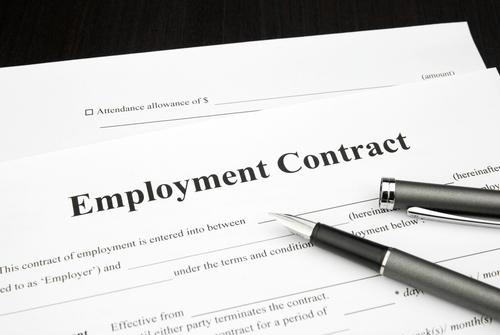 630-LAWYERS | 630-529-9377
630-LAWYERS | 630-529-9377
Se Habla Español
When Are Non-Compete or Non-Solicitation Clauses Unenforceable?
 Starting a new job can be exciting and nerve-wracking at the same time. In many cases, companies require new employees to sign an employment contract. This legal document includes information on salary, paid time off, job duties, benefits, and more. A contract may also include a “non-compete” clause. Essentially, this means that a worker cannot leave the company and go work for a competitor. These clauses protect businesses from employees taking specific information, skills, and client data and using it against them while working at another company. Similarly, a non-solicitation clause prevents a worker from contacting other workers at the same company or customers of the employer in an attempt to lure them to a competitor. It is imperative that an experienced business law attorney reviews these contracts in order to protect an employee’s rights.
Starting a new job can be exciting and nerve-wracking at the same time. In many cases, companies require new employees to sign an employment contract. This legal document includes information on salary, paid time off, job duties, benefits, and more. A contract may also include a “non-compete” clause. Essentially, this means that a worker cannot leave the company and go work for a competitor. These clauses protect businesses from employees taking specific information, skills, and client data and using it against them while working at another company. Similarly, a non-solicitation clause prevents a worker from contacting other workers at the same company or customers of the employer in an attempt to lure them to a competitor. It is imperative that an experienced business law attorney reviews these contracts in order to protect an employee’s rights.
What Does “Reasonable in Scope” Mean?
A non-compete clause usually contains a restriction on time and geographic location, meaning if an employee resigns, he or she cannot work for a competing company within a certain period of time after leaving his or her present company. Likewise, the contract can include a mileage radius in which a former worker may not go to seek employment if he or she quits.
A non-solicitation clause may include provisions addressing situations in which an employee leaves to work for a competing firm or starts a similar business on his or her own. It can also have a stipulation that an employee cannot ask coworkers to leave with him or her when departing the company to start a competing enterprise together.
It is important to note that any non-compete or non-solicitation agreement must be reasonable in terms of its scope in order for it to be enforceable from a legal standpoint. To be considered “reasonable,” the clause must:
-
Protect a valid business interest
-
Not cause an unfair hardship to the employee
-
Not violate public policy
Any agreement that prevents an employee from going to a competitor to work in a completely different job or role may be unenforceable. If the expertise he or she will be applying in his or her new position was not obtained at the previous job, then it is not considered a threat to his or her former company’s interests.
A clause preventing an employee from working for any competitor in the United States may be too broad, and it can be seen as causing undue hardship if it hinders a worker’s employment opportunities.
Non-compete or non-solicitation agreements that are deemed unlawful, give employers monopolies on the workforce in that industry or geographic area, or deprive an employee from working elsewhere may be unenforceable.
Contact an Aurora Employment Law Attorney
Signing any type of legally binding contract can be an intimidating experience. That is why it is essential to know what you are signing before putting your name on the dotted line. If you have questions or concerns regarding an employment contract, it is critical to seek professional legal counsel. The trusted law firm of Khan Nayyar & Associates is committed to helping you understand non-compete or non-solicitation clauses. Our diligent Joliet employment contract lawyers understand Illinois business laws and the important role they play in your employment opportunities. To schedule a confidential consultation, call our office today at 630-529-9377.
Sources:
http://www.ilga.gov/legislation/fulltext.asp?DocName=&SessionId=85&GA=98&DocTypeId=HB&DocNum=2782&GAID=12&LegID=74611&SpecSess=&Session













